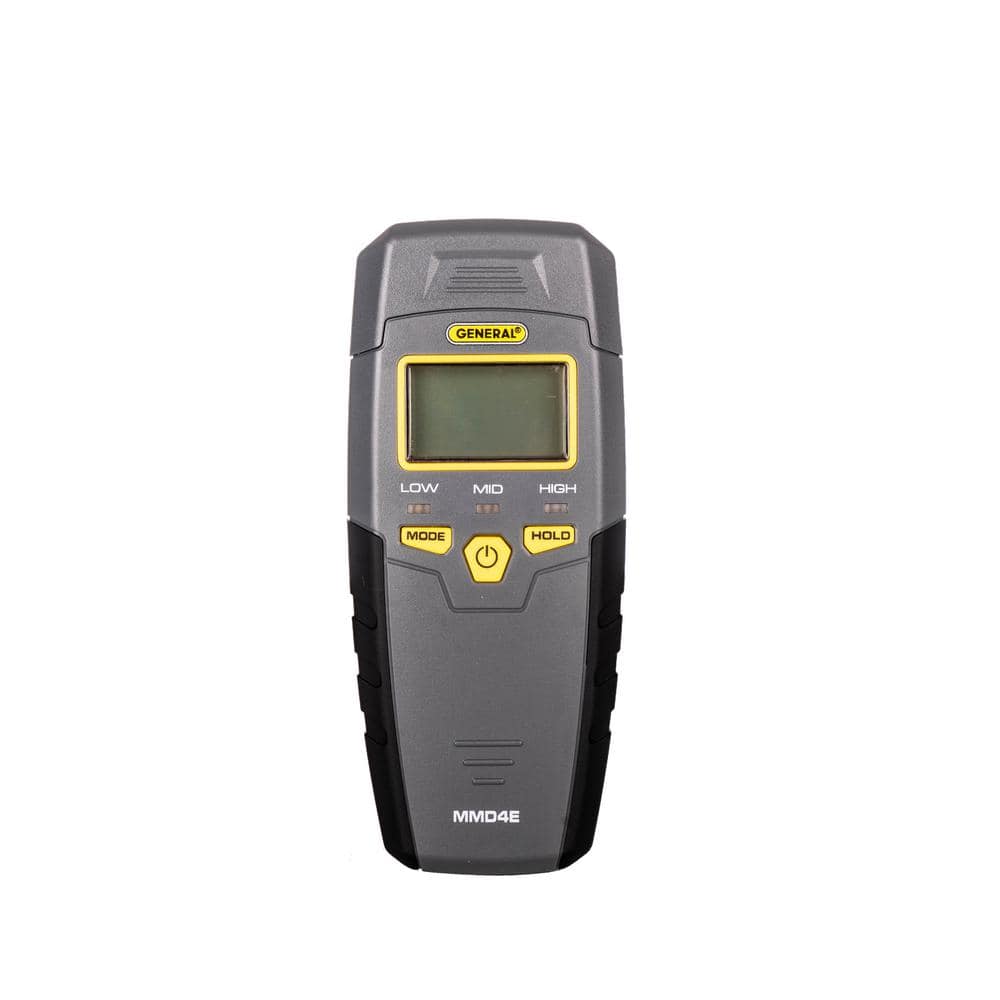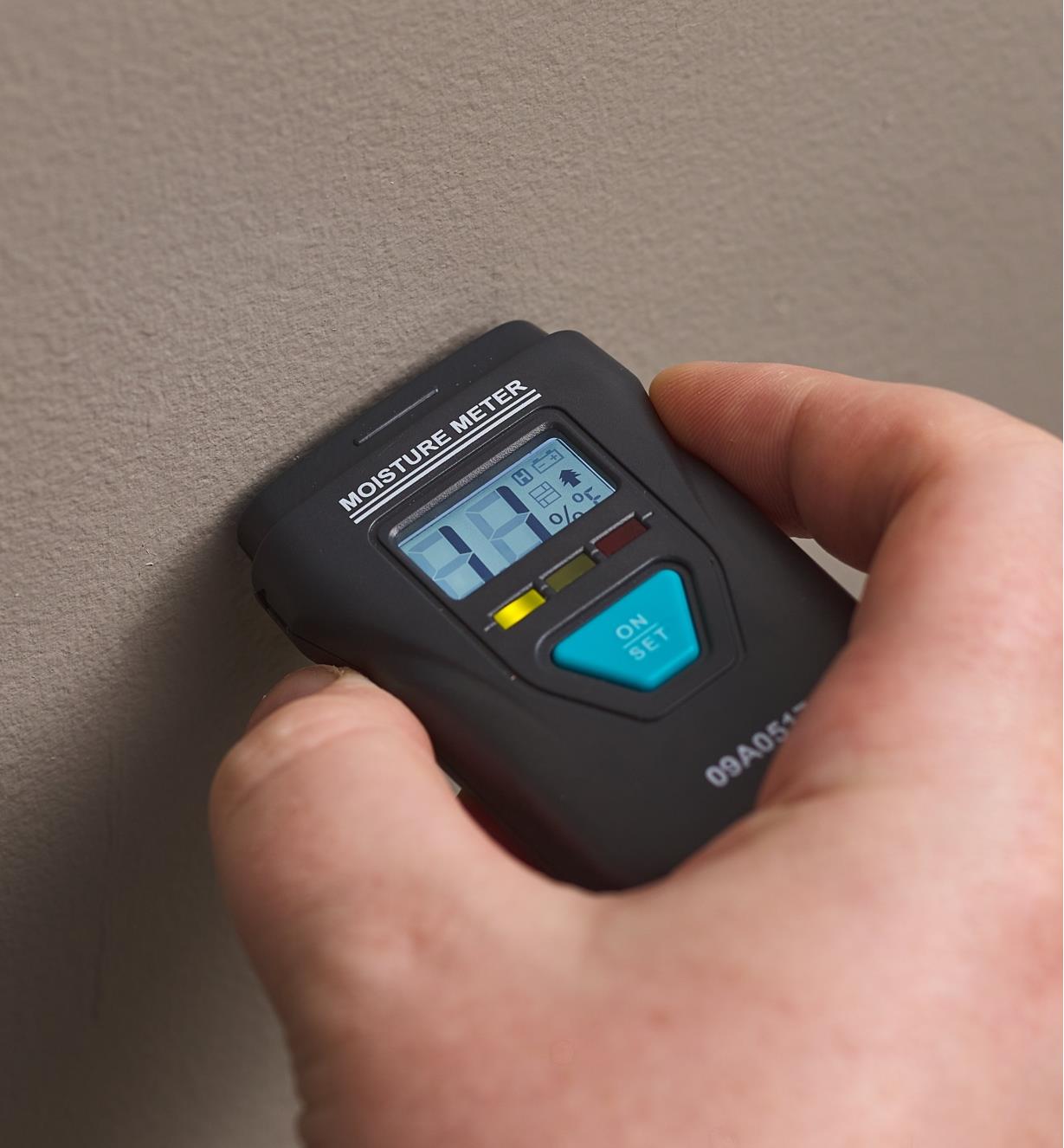The Ultimate Guide to Choosing the Right Moisture Meter for Your Requirements
The Ultimate Guide to Choosing the Right Moisture Meter for Your Requirements
Blog Article
The Ultimate Guide to Wetness Meters: A Comprehensive Review and Exactly How They Can Conserve You Money
Moisture meters offer as crucial devices in spotting and keeping an eye on moisture web content in materials, assisting in avoiding costly damages and making sure the high quality of items. Understanding the nuances of different types of wetness meters, their applications, and the possible cost-saving advantages they provide can be a game-changer for experts and businesses alike.
Types of Dampness Meters
One usual kind is the pin-type wetness meter, which determines the electrical resistance between 2 pins put right into a product. Pinless wetness meters, on the other hand, use electromagnetic sensing unit plates to check a bigger location without triggering damage to the material's surface.

Infrared wetness meters measure the thermal homes of a material to establish its dampness web content non-invasively, making them helpful for applications where pin or pinless meters might not be appropriate. Recognizing the different types of dampness meters available can assist markets pick the most appropriate tool for their certain dampness measurement requirements.

Benefits of Making Use Of Dampness Meters
Dampness meters use vital advantages in properly keeping track of and evaluating dampness degrees in varied products and environments. One of the primary benefits of using moisture meters is the avoidance of possible damages triggered by excess wetness.
Moreover, utilizing moisture meters can lead to increased power performance. By determining areas with high moisture degrees, such as leakages or inadequate insulation, changes can be made to enhance energy conservation and reduce energy costs. In farming settings, dampness meters play a critical function in optimizing plant yields by enabling farmers to check soil dampness levels and make informed irrigation decisions. Generally, the benefits of making use of moisture meters extend throughout numerous markets, supplying cost-effective services and promoting far better high quality control practices.
How to Select the Right Dampness Meter
When choosing a dampness meter, it's crucial to make certain that the meter is appropriate for the particular product you will certainly be screening. Various products have varying electric residential or commercial properties that can affect dampness readings, so selecting a meter designed for your product is essential for accurate outcomes. By meticulously examining these elements, you can choose a dampness meter that fulfills your requirements and supplies precise wetness measurements for your projects.
Correct Strategies for Wetness Meter Usage

Price Financial Savings Via Dampness Meter Applications
Just how can the calculated use of wetness meters cause considerable expense savings throughout numerous industries? Moisture meters play a vital function in cost savings by protecting against possible damages and guaranteeing quality assurance in various markets. In the farming market, moisture meters help in figuring out the ideal time for harvesting plants, protecting against excess or over-drying wetness that can affect the end product's top quality. This exact tracking assists farmers stay clear of unneeded losses and maximize their return.
Likewise, in construction, dampness meters assist stop expensive problems by detecting dampness degrees in structure products, such as timber or concrete, which can lead to architectural problems if not resolved promptly. By determining trouble areas beforehand, professionals can take rehabilitative measures to prevent extensive repair services or substitutes, ultimately conserving money and time.
Furthermore, in the food processing market, dampness meters are vital for checking item quality and making certain conformity with safety guidelines. By properly measuring moisture content in food, suppliers can protect against spoilage, preserve freshness, and lower waste, resulting pop over to these guys in considerable cost financial savings. Generally, the strategic application of moisture meters is an important investment that can cause considerable expense reductions and enhanced efficiency across various industries.
Conclusion
In final thought, moisture meters are valuable devices for determining and discovering wetness degrees in numerous products. By making use of the ideal dampness meter and complying with appropriate techniques, customers can successfully prevent pricey damages created by excess moisture.
Dampness meters serve as essential devices in discovering and keeping track of moisture web content in materials, helping in here avoiding expensive problems and guaranteeing the top quality of products. Infrared dampness meters measure the thermal homes of a product to determine its wetness web content non-invasively, making them beneficial for applications where pin or pinless meters might not be suitable.Wetness meters offer indispensable benefits in accurately keeping an eye on and analyzing moisture levels in varied products and environments. In farming setups, moisture meters play an essential duty in enhancing plant returns by making it possible for farmers to monitor soil moisture levels and make informed irrigation decisions.In conclusion, wetness meters are useful devices for detecting and measuring wetness levels in different materials.
Report this page